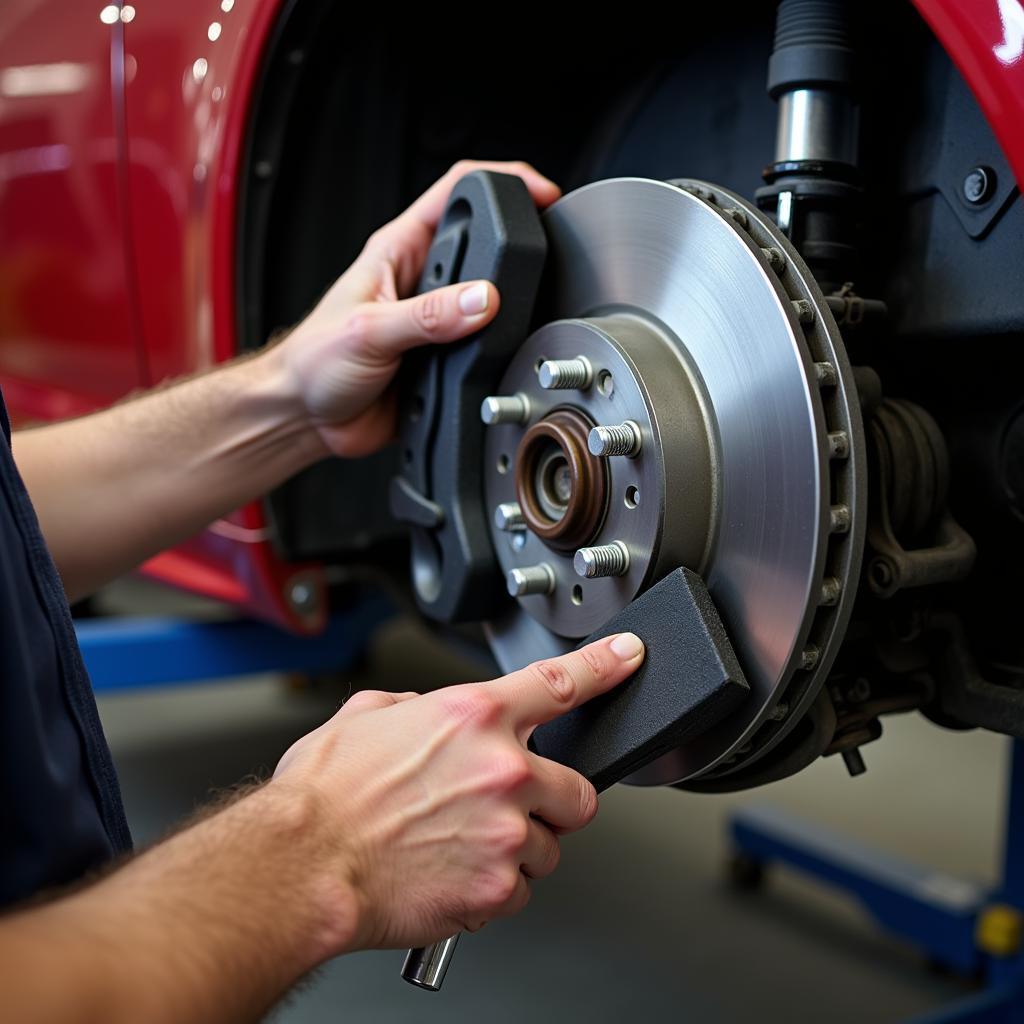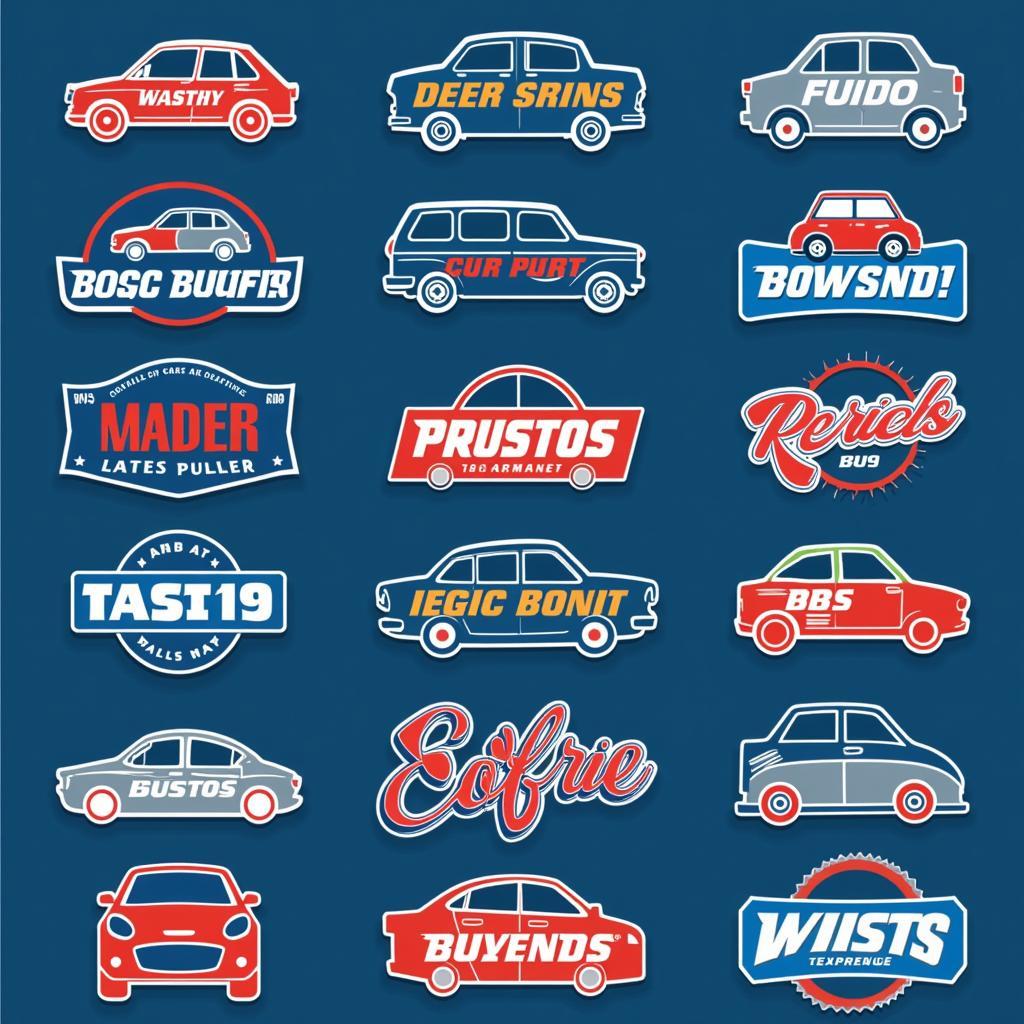What is Normally Done in a Car Service?
A car service is more than just an oil change. It’s a comprehensive check-up that keeps your vehicle running smoothly and safely. Understanding What Is Normally Done In A Car Service can save you money and prevent costly repairs down the line. So, what exactly happens during a typical car service? Let’s dive in and explore the essential checks and procedures involved.
Understanding the Importance of Regular Car Servicing
Regular car servicing is crucial for maintaining the safety, reliability, and longevity of your vehicle. Just like regular check-ups with your doctor, routine car services help identify potential problems early, preventing them from escalating into major and expensive repairs. Furthermore, a well-maintained car operates more efficiently, leading to better fuel economy and reduced emissions. It also retains its value better over time.
What Does a Standard Car Service Include?
A standard car service typically covers a wide range of checks and procedures, addressing key components of your vehicle. This includes inspecting vital fluids like engine oil, coolant, brake fluid, and power steering fluid, ensuring they are at the correct levels and in good condition. The service also involves replacing the oil filter and, if necessary, the air filter.
Beyond fluids and filters, a car service also encompasses a thorough inspection of your vehicle’s braking system, including checking brake pads, discs, and lines for wear and tear. Tires are also examined for proper inflation, tread depth, and overall condition. Lights, wipers, and other essential components are also checked to ensure they function correctly.
Different Types of Car Services: What to Expect
Beyond the standard service, there are different levels of car servicing, each designed to address specific needs and mileage intervals. An interim service is recommended every six months or 6,000 miles, offering a more in-depth inspection and maintenance than a basic oil change. A full service, typically performed annually or every 12,000 miles, covers a comprehensive range of checks and replacements, ensuring all major components are in optimal condition. Finally, a major service, recommended every 24,000 miles or two years, involves more extensive procedures, including replacing timing belts and other crucial parts.
What’s the Difference Between an Interim and Full Service?
While both are important, an interim service acts as a preventative measure, addressing minor issues before they become major problems. A full service, on the other hand, is more comprehensive, ensuring all major components are thoroughly checked and maintained.
 Car Service Brake Inspection
Car Service Brake Inspection
Why Choose a Reputable Car Service Center?
Choosing a reputable car service center is crucial for ensuring quality workmanship and reliable service. Look for centers with certified technicians, modern equipment, and a commitment to customer satisfaction. Reading online reviews and seeking recommendations from friends and family can help you find a trustworthy service provider. A reputable center will also provide transparent pricing and detailed explanations of the services performed.
“Regular car servicing isn’t just about keeping your car running; it’s about ensuring your safety and peace of mind,” says John Davis, a certified automotive technician with over 20 years of experience. “A well-maintained car is a safe car.”
How to Find the Best Car Service Near You
Finding a reliable car service near you doesn’t have to be a daunting task. Utilize online search engines, check local directories, and ask for recommendations from friends and family. Consider factors like proximity, pricing, and customer reviews when making your decision.
The Benefits of Preventative Maintenance
Preventative maintenance through regular car servicing offers numerous benefits. It extends the lifespan of your vehicle, enhances its performance and fuel efficiency, and helps avoid costly repairs down the line. Regular servicing also contributes to a safer driving experience by ensuring all vital components are functioning correctly.
“Investing in regular car servicing is an investment in the long-term health of your vehicle,” adds Sarah Miller, a senior automotive advisor. “It’s a proactive approach that saves you money and headaches in the long run.” A well-maintained car also offers a smoother, more enjoyable driving experience.
Conclusion: Keeping Your Car in Top Condition
Understanding what is normally done in a car service empowers you to make informed decisions about your vehicle’s maintenance. By prioritizing regular servicing, you can ensure its safety, reliability, and longevity, saving money and enjoying a smoother, more worry-free driving experience. Don’t neglect your car’s essential needs; schedule a service today.
FAQ
- How often should I service my car? It depends on your car’s make and model, but generally, every 6 months or 6,000 miles for an interim service and annually or every 12,000 miles for a full service.
- What is the difference between an interim and a full service? An interim service is more frequent and less extensive than a full service.
- How much does a car service cost? The cost varies depending on the type of service and your car’s make and model.
- What should I look for in a car service center? Look for certified technicians, modern equipment, and positive customer reviews.
- How can I schedule a car service? You can usually schedule a service online or by calling the service center directly.
- What are the benefits of regular car servicing? It enhances safety, reliability, performance, and fuel efficiency, while preventing costly repairs.
- What if I skip car services? Skipping services can lead to major problems and costly repairs down the line, potentially compromising your safety.
Perhaps you are also interested in how to service car injectors.
For further assistance, please contact us via WhatsApp: +1(641)206-8880, Email: [email protected] or visit us at 456 Oak Avenue, Miami, FL 33101, USA. Our customer service team is available 24/7.

